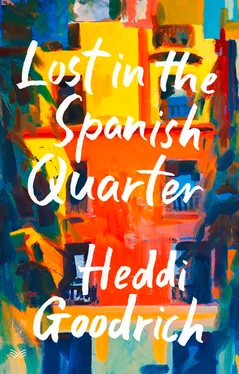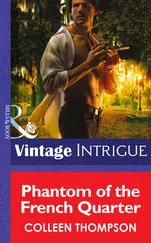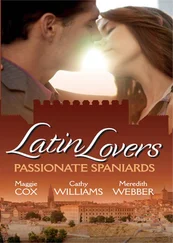1 ...7 8 9 11 12 13 ...20 “And the water tasted like sulfur before the wells suddenly dried up,” added Pietro, “but they made nothing of it. They didn’t have the science. The people didn’t even know it was a volcano. For them it was just a mountain that gave them good grapes to make wine with …” As if to restrain inappropriate laughter, or for having said too much, his hand was back over his mouth.
His knowledge must have impressed Luca, for after that he collegially, almost gentlemanly, deferred to Pietro for every geological detail of his historical tale. Perhaps Luca’s greatest wisdom was knowing what it was that he did not know, and Pietro added or corrected with the very same humility. One day around one in the afternoon, as the story went, came the blast, along with an eruption column about thirty kilometers high. When it hit the top of the sky, the column spread out like an umbrella pine, according to the eighteen-year-old Pliny watching the disaster from Misenum. Eventually though, the earth took back what rightfully belonged to it and all the erupted matter came back down—ash, pumice, rocks. Darkness fell like a sudden midnight. All afternoon and all night, rocks hammered the city, a malicious rain that made roofs cave in and filled up bedrooms and the streets of Pompeii and Stabiae, all the while sparing Herculaneum so as to leave it to the mercy of mudslides. Clouds of suffocating ash caught any who had survived. Just as the sea had pulled away from the coastline, leaving fish and shellfish on dry sand, so too were the gods deserting man.
As Luca spoke, the scirocco brushed his cigarette smoke east and then west before blurring it into the yellow night. “On top of that, there were toxic gases.”
“And intense heat,” added Pietro. “Pyroclastic surges.”
Luca nodded gratefully before concluding, “That day over ten thousand people lost their lives.”
I listened as if strapped to my seat. For years when I’d lived right there, in what was ancient Stabiae, where Pliny the Elder himself had died suffocated by the ash, like everybody else I gave little thought to the stories beneath my feet. Now, for some reason, that familiar truth filled me with an electrifying fear that bordered on euphoria: maybe it was the shimmering threads Luca had woven into the story, or maybe something else entirely.
I glanced over at Pietro, whose eyes, too, were on Luca as he drank from his cup, unperturbed by the Saharan wind teasing strands of hair from his ponytail. It was the way I often looked at Luca myself, with an admiration I was desperate to hide, all the more in moments like this when his tongue was loosened—by the wine or by the wind, I couldn’t tell. Everyone else, though, was craning their necks to catch a glimpse at the volcano beyond the city lights, as though they’d only just now noticed it was there.
“Not to mention the devastating eruption of 1631,” Luca said finally.
No one dared to ask about 1631. Someone shouted in the streets below, a motorbike skidded: it all seemed so far away. Pietro reached for his shirt pocket swollen with the perfect rectangle of his Marlboro Lights. As he did so, his shirt stretched opened a little, giving me a peek at a silver pendant. A sun?
Quickly I turned away. It wasn’t my gift to unwrap. And yet the wind was fiddling with the collar of my moth-eaten jacket, breathing onto my neck, breathing my name. Hurry up, Heddi, hurry up .
The wine was gone, the soppressata, too, but the evening wasn’t over. The mismatched chairs had moved like checker pieces away from the table; Davide sat on the edge of the fountain talking thick as thieves with Luca. The conversation shifted to lighter topics. At one point, Angelo took a breadcrust and balanced it on his upper lip. “How do I look with a mustache?”
“You look like Signor Rossi,” Tonino said drolly.
“Oh yeah, Signor Rossi, that cute little cartoon guy,” said Sonia. “I loved him when I was little.”
“So people in Sardinia already had television then?” Angelo teased her.
Again laughter. I didn’t look Pietro’s way to see if he was laughing or not. Surely he, like everyone else, knew who this childhood hero Signor Rossi was. I stood to clear the table.
“I’ll give you a hand.” Pietro was already at my side piling the dirty dishes. I thanked him, gesturing him to follow me toward the kitchen. Behind me he said, “I hear you’re a talented linguist.”
“Where did you hear that?”
“Is it true you speak five languages?”
“Four, actually. My Russian’s terrible,” I said, putting the dishes beside his on the kitchen counter. I never counted Neapolitan—no one did—though it, too, was technically a language, Vulgar Latin steeped in Oscan, Greek, and even Arabic.
“Russian, I’m impressed. And a whole other alphabet too.”
“It’s actually not that hard to learn. I could teach you to read Cyrillic in five minutes.”
“I’d like that.”
Had I been so bold as to offer him a private lesson? I hadn’t meant it that way. But I had asked him to follow me inside, away from all the others, when surely I could have cleared the table myself. All I knew was that out of the restless wind talking seemed easier. I beckoned him over to the sooty, cold fireplace. Up close I could smell his cologne. A breath of fresh air, a pine forest.
I pointed to the brown flowers on the tiled floor. “What do you make of this crack?”
“I see,” he said. “How far does it go?”
“All the way to the terrace.” I watched him as he stepped along the crack, cautiously as if on the edge of a crevasse. “I think it’s getting wider,” I added. “But the boys don’t seem to pay any attention to it, not even Angelo, who has a crack in the ceiling in his bedroom.”
“I’m not sure. But it doesn’t look good, the way it follows the outer wall like this.” He paused above it, squatting now.
I followed suit. I didn’t know what I wanted from Pietro, who was neither an engineer nor an architect but a scientist of the Earth, but all I knew was that it was good to be able to crouch beside him, not looking at each other, in such a domestic stance.
I caught a glance of Sonia outside on the terrace. She was so goodhearted, and from a good family. Despite her cranelike frame, she retained that wholesome baby fat in her cheeks that I’d lost abruptly, overnight it seemed, some years back, unveiling a raw pair of cheekbones like rocks after the tide has pulled away, a vestige perhaps of the Cherokee blood that coursed through my veins and that, even in a small dose, could one day reawaken the nomad in me.
I thought about Sonia’s solemn confession on the roof that night, but I didn’t know how much weight to give it. Was it like in that card game where the first person to play their cards has the implied right to win the hand? Somehow it seemed so and that, according to these rules, it didn’t matter that Pietro had given me a gift, and that the old churchwoman in the cemetery mysteriously seemed to have known about him, and that the memory of his gentle nature was a music that wouldn’t give me rest, and that now his far-fetched face, with that nose appearing oddly delicate up close, was looking back at me with a rather serious expression. Was he worried about the crack in the floor or was he having the same thoughts as I was?
5 Contents Cover Title Page LOST IN THE SPANISH QUARTER Heddi Goodrich Copyright Dedication Chapter 1 Chapter 2 Chapter 3 Chapter 4 Chapter 5 Chapter 6 Chapter 7 Chapter 8 Chapter 9 Chapter 10 Chapter 11 Chapter 12 Chapter 13 Chapter 14 Chapter 15 Chapter 16 Chapter 17 Chapter 18 Chapter 19 Chapter 20 Chapter 21 Chapter 22 Chapter 23 Chapter 24 Chapter 25 Chapter 26 Chapter 27 Chapter 28 Chapter 29 Chapter 30 Chapter 31 Chapter 32 Chapter 33 Acknowledgments A Note from the Translator and Author About the Author About the Publisher
Читать дальше












